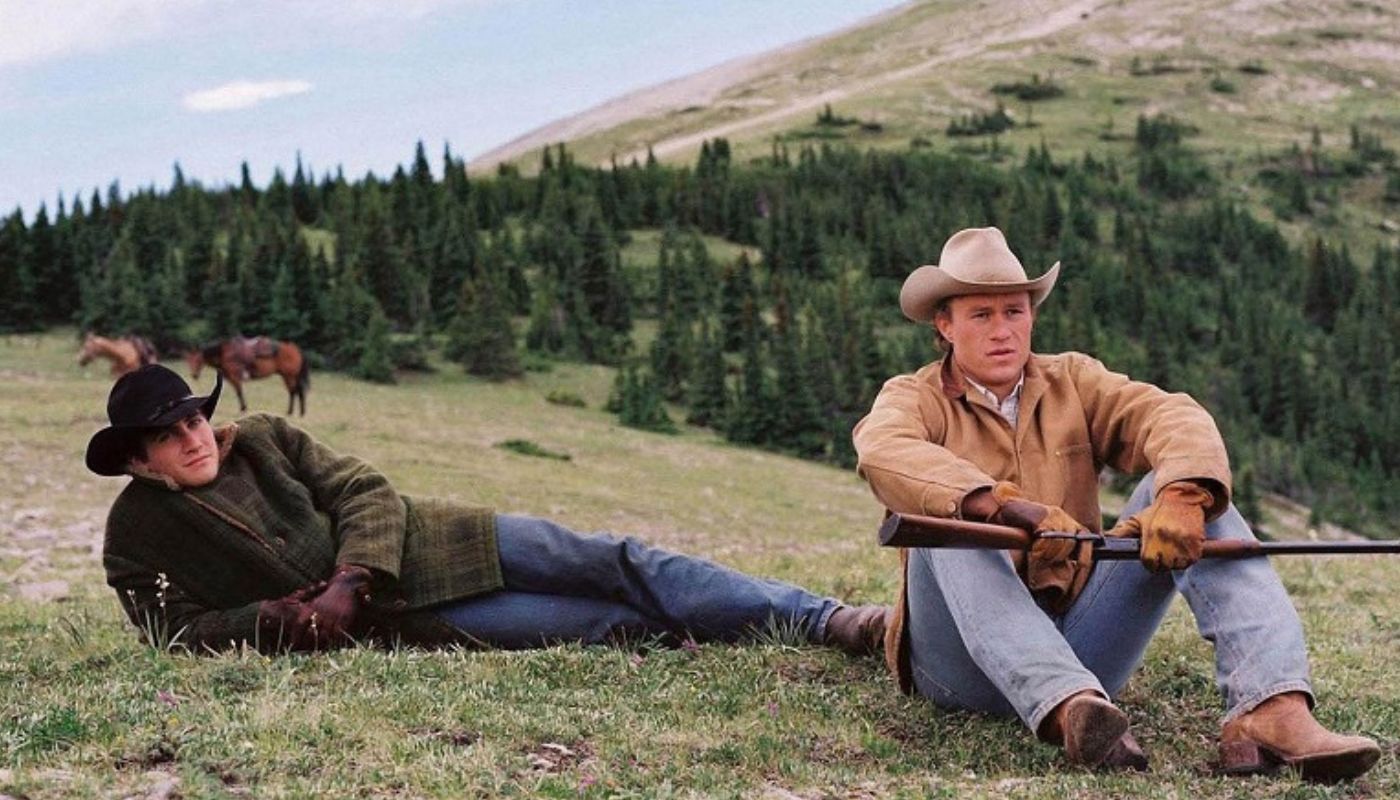
HETEROTOPIA AT HIGH ALTITUDE
by PETER ABRAMI
There are times and situations in which to deal with a certain topic, to write to it, you have to move on the bounce, on the side, in basketball you would say “table”. My relationship with the mountains can easily be included in these situations, as a secondary relationship, made possible only by intermediaries, in my case friends with whom I occasionally venture into the recently infamous “Sunday excursions”. Secondary, indirect relationships, however, are also made possible by those elements that for decades or centuries have made our earthly existence at least more tolerable, that is, books, songs, films.
A little over twenty years ago, in September 2005, the 62nd edition of the Venice International Film Festival took place. That year, the prestigious Golden Lion was awarded to a film with two extraordinary protagonists who, all the time, dialogue sometimes clearly, others almost imperceptibly, with the third great protagonist of this wonderful work, based on a story by Annie Proulx and directed by the Taiwanese Ang Lee. The first protagonist is Ennis del Mar, played by the late Heath Ledger. The second is Jack Twist, aka Jake Gyllenhaal. The third is Brokeback Mountain, a fictitious mountain in Wyoming that gives the film its title, and which the most attentive will recognize as much more than a mere background of the plot.
Plot that revolves around the forbidden, scandalous, yet unstoppable love between Ennis and Jack starting from the summer of 1963 through time, space, marital status and other existential dimensions. But what role does the mountain play in all this? Throughout their adult lives, the two cowboys periodically return to Brokeback Mountain in order to live out their love, thus making the mountain what Michel Foucault would have called heterotopia. Perhaps we need to use our imagination a little, or, as mentioned before, move on the side. Foucault never speaks of mountains in this sense, yet one can recognize in Brokeback Mountain the traits of the heterotopia of deviance, places where society isolates those who do not reflect the norm, usually hospitals, asylums, prisons. Isolation is, in this case, of course voluntary, so please grant me this “sociological license”. The mountain therefore becomes the protagonist as a space of inversion of meaning, of return to a natural state, meaning by this not so much a sort of reference to the myth of the noble savage, but rather a dichotomous absence of that patriarchal and strongly homophobic culture (we are in Wyoming in the 60s…), perfectly embodied in the character of Aguirre, but in fact also absorbed by Ennis, for the reasons and with the consequences that those who know, know and those who will see, will see. Far from the
In two ways you can see the mountain space of the film. On the one hand, as utopia, free space, at times almost a locus amoenus where the protagonists carve out their own lives, taking refuge from an outside where they have no reason to exist. On the other hand, one can return to deviance, to the inconvenient, to the rough. In the Italian version (and in those of other Romance languages) the title is The Secrets of Brokeback Mountain. From a strictly grammatical point of view, the subject of the title, and therefore the protagonist of the film, is no longer the mountain, but “the secrets”. Not therefore a place of freedom but a real heterotopia of deviance, where the protagonists isolate themselves voluntarily, but in reality because they have no choice, because they have no other space where they can live together. If it is true that a book is not judged by its cover, it is also true that the title that is given to a work is like a beacon that (at least in intentions) directs the user towards a certain key to reading it. Perhaps then it is no coincidence that on the occasion of the first broadcast of the film on Italian TV, on December 8, 2008 on Rai 2, some of the erotic scenes between the two male protagonists were cut by the censorship scissors.
Twenty years later, therefore, Brokeback Mountain unfortunately remains a disturbing topical film, a cult of extraordinary sincerity that deals with society’s relationship with a queer love story, unlike me, in a direct way, without rebounds, or banks, or tables. And without secrets. Because he doesn’t want them.
